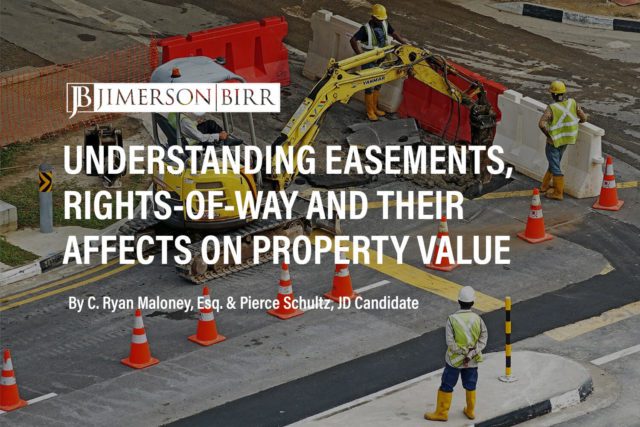What do disputes involving easements, facility, usage, signage, and security matters encompass?
Disputes involving easements, facility usage, signage, and security matters in commercial landlord/tenant leasing in Florida can arise from disagreements on property rights, access, and responsibilities. Easements, for instance, grant non-owners the right to use a portion of the property for specific purposes, such as utility access or shared driveways. Disagreements can arise if one party oversteps or obstructs the other’s rights under the easement terms.
Facility usage disputes can result from ambiguous lease terms or unauthorized use of shared facilities like parking lots, common areas, or storage spaces. Signage disputes may arise if a tenant’s signs violate the lease agreement or local ordinances or otherwise obstruct the visibility of other tenants’ signage.
On the other hand, security matters encompass various issues, such as the responsibility for surveillance equipment, security personnel, and safety protocols.
An example of a dispute involving these matters is when a tenant’s security camera encroaches on a neighboring property’s easement, potentially violating the lease’s terms and security provisions. Resolving this dispute would require a thorough understanding of the easement’s scope, lease terms, and relevant Florida and federal laws.
Need a commercial leasing advocate? Schedule your consultation today with a top commercial landlord/tenant leasing attorney.
Which laws and regulations apply to disputes involving easements, facilities, usage, signage, and security matters in Florida?
To address disputes involving easements, facility usage, signage, and security matters in commercial landlord/tenant leasing, parties should refer to Florida and federal laws and local regulations. Florida Statutes, such as § 704 for easements and § 83 for landlord/tenant matters, provide essential guidance.
Local zoning ordinances and signage regulations should be considered for signage disputes in particular, as they dictate allowable sign size, placement, and content.
Federal regulations, such as the Americans with Disabilities Act (ADA), can also impact facility usage and signage requirements for commercial properties.
How do disputes involving easements, facility, usage, signage, and security commonly lead to litigation between commercial landlords and tenants?
The following issues commonly lead to litigation:
- Easement disputes: Conflicts arise when the rights granted to non-owners under easements, such as shared access, are violated by either party. Misinterpreting or violating the terms of Florida Statutes § 704 can lead to litigation.
- Facility usage disagreements: When the lease terms regarding shared facilities (e.g., parking lots or common areas) are unclear or a tenant uses these areas without authorization, disputes can emerge and lead to legal action.
- Signage conflicts: Disputes may arise if a tenant’s signs infringe on local ordinances or lease agreements or obstruct other tenants’ visibility. Litigation can result if parties fail to resolve these issues amicably.
- Security matters: Security-related disputes often involve disagreements over responsibilities for security equipment, personnel, and safety protocols. Noncompliance with lease terms or industry standards may prompt legal action.
When a set of facts is appropriate for legal intervention, there are many paths a claimant may take. We are value-based attorneys at Jimerson Birr, which means we look at each action with our clients from the point of view of costs and benefits while reducing liability. Then, based on our client’s objectives, we chart a path to seek appropriate remedies.
To determine whether your unique situation may necessitate litigation or another form of specialized advocacy, please contact our office to set up your initial consultation.
How should counsel for commercial landlords draft, review, and negotiate a lease that mitigates litigation risks?
Counsel should consider the following to protect their clients:
- Clearly define easement rights: To prevent disputes, counsel should explicitly outline the scope and terms of easements in the lease.
- Specify facility usage provisions: Detailing the permitted usage of shared facilities, including any restrictions or guidelines, will help reduce the likelihood of misunderstandings and disputes.
- Address signage requirements: Counsel should include explicit signage provisions in the lease, ensuring compliance with local ordinances and avoiding potential conflicts with other tenants.
- Outline security responsibilities: Assigning responsibilities for security measures, equipment, and personnel can help prevent disputes related to security matters. In addition, complying with industry standards and applicable regulations is essential in mitigating litigation risks.
- Negotiate and communicate: Engaging in open communication and fair negotiation with tenants can help resolve potential disputes before they escalate into litigation. In addition, encouraging a collaborative approach to problem-solving fosters a positive landlord-tenant relationship.
Please contact our office to set up your initial consultation to see what forms of intellectual property protection may be available for your unique situation.
Frequently Asked Questions
- What is an easement?
An easement is a right that allows a person or entity to use the land of another person or entity for a specific purpose. For example, a utility company may have an easement to run power lines across a landowner’s property.
- What are some examples of easements that may be relevant to commercial leases?
Some examples of easements that may be relevant to commercial leases include the following:
- Ingress and egress: This allows the tenant to access and exit the property.
- Utilities: This allows the landlord to provide utilities to the property, such as water, sewer, and electricity.
- Parking: This allows the tenant to park on the landlord’s property.
- Signage: This allows the tenant to place signs on the property.
- What are some common disputes between commercial landlords and tenants involving easements?
Some common disputes between commercial landlords and tenants involving easements include:
- The landlord may deny the tenant access to the property.
- The landlord may terminate the tenant’s right to use the easement.
- The landlord may interfere with the tenant’s use of the easement.
- The tenant may fail to maintain the easement.
- The tenant may use the easement for a purpose other than the one for which it was granted.
Have more questions about how commercial leasing could impact your business?
Crucially, this overview of disputes involving easements, facility, usage, signage, and security matters does not begin to cover all the laws implicated by this issue or the factors that may compel the application of such laws. Every case is unique, and the laws can produce different outcomes depending on the individual circumstances.
Jimerson Birr attorneys guide our clients to help make informed decisions while ensuring their rights are respected and protected. Our lawyers are highly trained and experienced in the nuances of the law, so they can accurately interpret statutes and case law and holistically prepare individuals or companies for their legal endeavors. Through this intense personal investment and advocacy, our lawyers will help resolve the issue’s complicated legal problems efficiently and effectively.
Having a Jimerson Birr attorney on your side means securing a team of seasoned, multi-dimensional, cross-functional legal professionals. Whether it is a transaction, an operational issue, a regulatory challenge, or a contested legal predicament that may require court intervention, we remain tireless advocates at every step. Being a value-added law firm means putting the client at the forefront of everything we do. We use our experience to help our clients navigate even the most complex problems and come out the other side triumphant.
If you want to understand your case, the merits of your claim or defense, potential monetary awards, or the amount of exposure you face, you should speak with a qualified Jimerson Birr lawyer. Our experienced team of attorneys is here to help. Call Jimerson Birr at (904) 389-0050 or use the contact form to schedule a consultation.

We live by our 7 Superior Service Commitments
- Conferring Client-Defined Value
- Efficient and Cost-Effective
- Accessibility
- Delivering an Experience While Delivering Results
- Meaningful and Enduring Partnership
- Exceptional Communication Based Upon Listening
- Accountability to Goals











